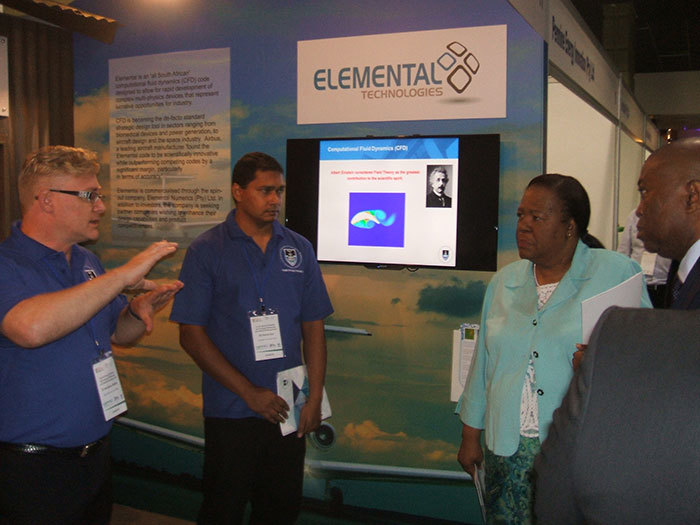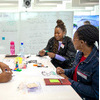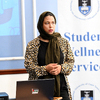UCT innovations triumph at science and technology expo
17 March 2015 | Story by Newsroom
Hydrogen fuel cells, a fire detector for informal settlements and computational fluid dynamic software, all developed at UCT, generated much interest from potential investors and commercial partners at the Department of Science and Technology's (DST) recent expo.
The three innovations were showcased by UCT's Research Contracts and Intellectual Property Services (RCIPS) at the DST's inaugural Innovation Bridge Technology Showcase and Matchmaking, held in Pretoria.
The expo gives national and international technology-based companies, technology development partners, entrepreneurs, investors and financiers first-hand insights into the country's premier publicly funded technologies. These are aligned to the DST's goal of supporting South African technologies that have a social impact.
Working with local manufacturing partners, HyCat hydrogen fuel cells are positioned to develop a local fuel cell supply chain in South Africa for the global market.
Two wins for UCT
The Elemental CFD software is an 'all-South African' computational fluid dynamics (CFD) code that allows for the rapid development of complex multi-physics devices and represents lucrative opportunities for industry.
The Lumkani fire detector offers an affordable and easily implementable solution to reducing the risk and impact of fires in dense informal settlements.
The detector bagged two wins for UCT: for the best pitch (by UCT mechatronics graduate Paul Mesarcik), and the innovation most likely to have an impact on inclusive development. Lumkani's pitch was well attended, mirroring interest in the innovation.
The first of its kind, the event was an opportunity for private meetings with representatives from Eskom, Anglo, Engen and Alan Gray, as well as NGOs, government and science councils.
RCIPS used the opportunity to launch Innovation Opportunities, a publication that profiles other technologies UCT wants to develop, but still needs commercial partners to bring these to fruition.
Some technologies are still in the early stage of development; others offer mature licensing opportunities, where a commercial partner is needed to realise the innovation.
In addition, there are incubated virtual companies and new ventures that have already made their products available commercially.
 This work is licensed under a Creative Commons Attribution-NoDerivatives 4.0 International License.
This work is licensed under a Creative Commons Attribution-NoDerivatives 4.0 International License.
Please view the republishing articles page for more information.










